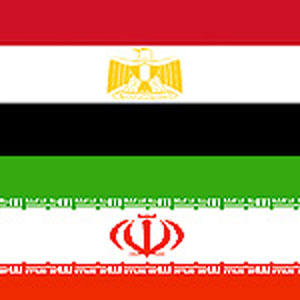Iran the Strategic Depth of Arab States

Iran-Egypt relations under President Mahmoud Ahmadinejad were on the verge of improvement twice but they were not normalized although high-level Iranian officials paid repeated visits to Egypt.
An interview with Sabah Zanganeh, expert in Middle East affairs:
There were some news reports about renewed diplomatic activities between Tehran and Cairo last week. Furthermore, Iranian and Egyptian officials while stressing the significance of mutual ties for the cause of security and stability in the Middle East and Persian Gulf, have voiced a desire to strengthen relations in line with serving the interests of the two nations, governments as well as those of Arab and Islamic states.
Iran-Egypt relations under President Mahmoud Ahmadinejad were on the verge of improvement twice but they were not normalized although high-level Iranian officials paid repeated visits to Egypt with the same aim.
In the following interview, Sabah Zanganeh, an expert in Middle East affairs, comments on the issue.
Q: There are efforts under way to reestablish diplomatic ties between Tehran and Cairo. How do you evaluate these efforts?
A: Resumption of diplomatic ties between Iran and Egypt is a natural phenomenon and a failure to do so would be unnatural. However, some tensions have surfaced between the two countries which have delayed reestablishment of full diplomatic relations. Of course, the two states maintain economic, commercial and scientific ties. There is also international political cooperation between Iran and Egypt. What is currently lacking between Tehran and Cairo is mutual diplomatic cooperation and the two countries need to promote diplomatic ties to the ambassadorial level. Resumption of Tehran-Cairo ties will serve the interests of both nations. Moreover, the regional countries too would benefit from resumption of ties between the two big and important states and it would also contribute to stability and security in the region.
Q: In view of the tensions existing between the two countries and escalation of propaganda activities against one another, to what extent one can pin hope on elimination of hostilities and resumption of diplomatic ties between the two countries?
A: All tensions and misunderstandings can be removed through negotiations and understanding. There are indications that the two governments have goodwill in this respect. It seems the two sides are working to eradicate the existing tensions and grounds are favorable to do this.
Q: With regards to the efforts being made by the Egyptian president to improve the image of his country in the Arab world, don’t you think Cairo’s emphasis on pan-Arabism would be an obstacle in the way of improvement of relations between Tehran and Cairo?
A: I don’t think so, because the Islamic Republic of Iran is the strategic depth of the Arab countries. Therefore, development of relations between the Arab countries would not harm expansion of their ties with Iran. On the contrary, it could strengthen Iran-Egypt ties.
Q: In case Tehran-Cairo ties are mended, what do you think would be Egypt’s position vis-à-vis Iran’s nuclear issue? Would Egypt support Iran or stand as an obstacle in its way?
A: Both Egypt and the Persian Gulf Arab states alongside some other countries in the Middle East, are eager to launch peaceful nuclear energy programs. This desire shows that these countries support Iran’s peaceful nuclear program. Iran’s nuclear program is a valuable experience for the countries of the region and they can benefit from IRI’s experiences in this regard. The course the Arab countries in the Middle East take in accessing nuclear technology is similar to that taken by Iran. Therefore a nuclear Iran would serve as a good model for them. Any obstacle thrown in the way of Iran’s nuclear program now could become a hurdle in the way of these countries in the future.
ENDS

